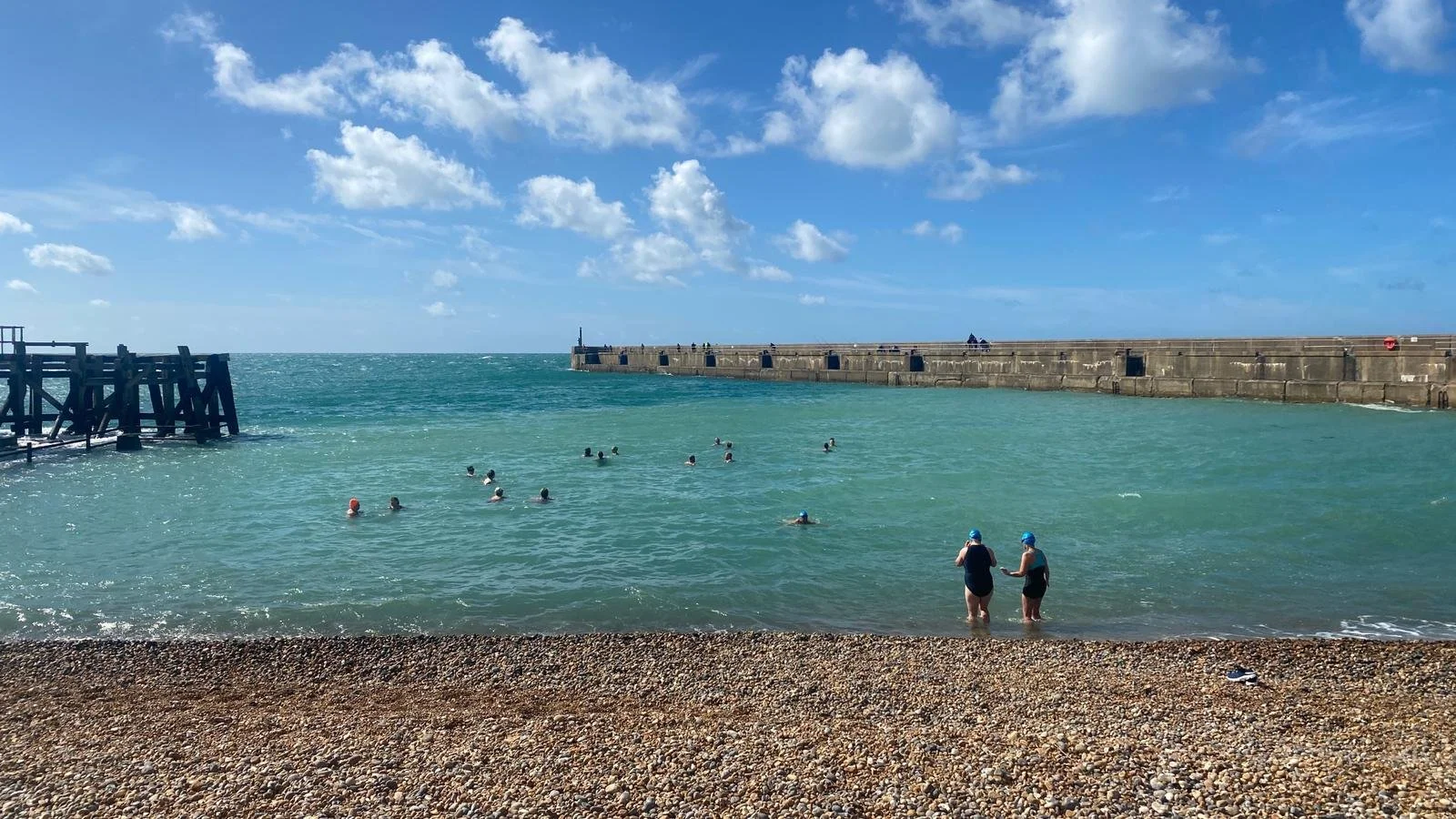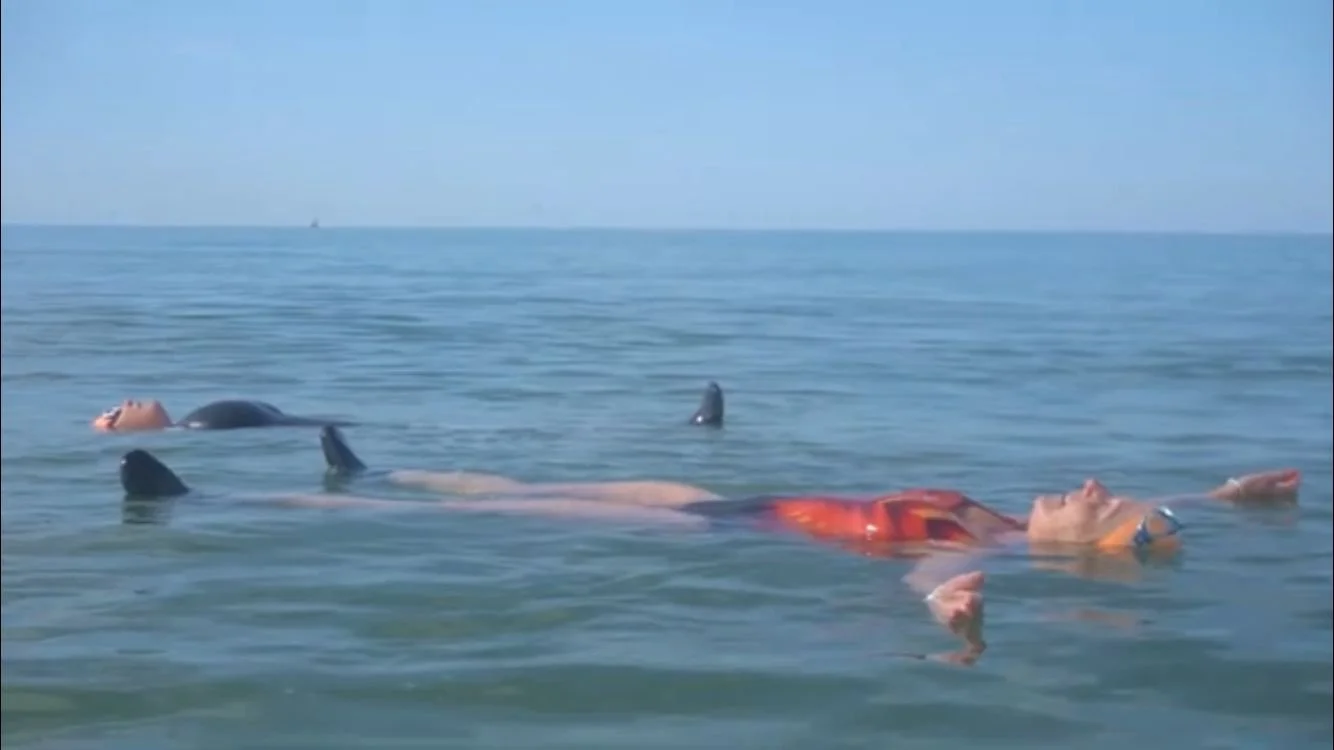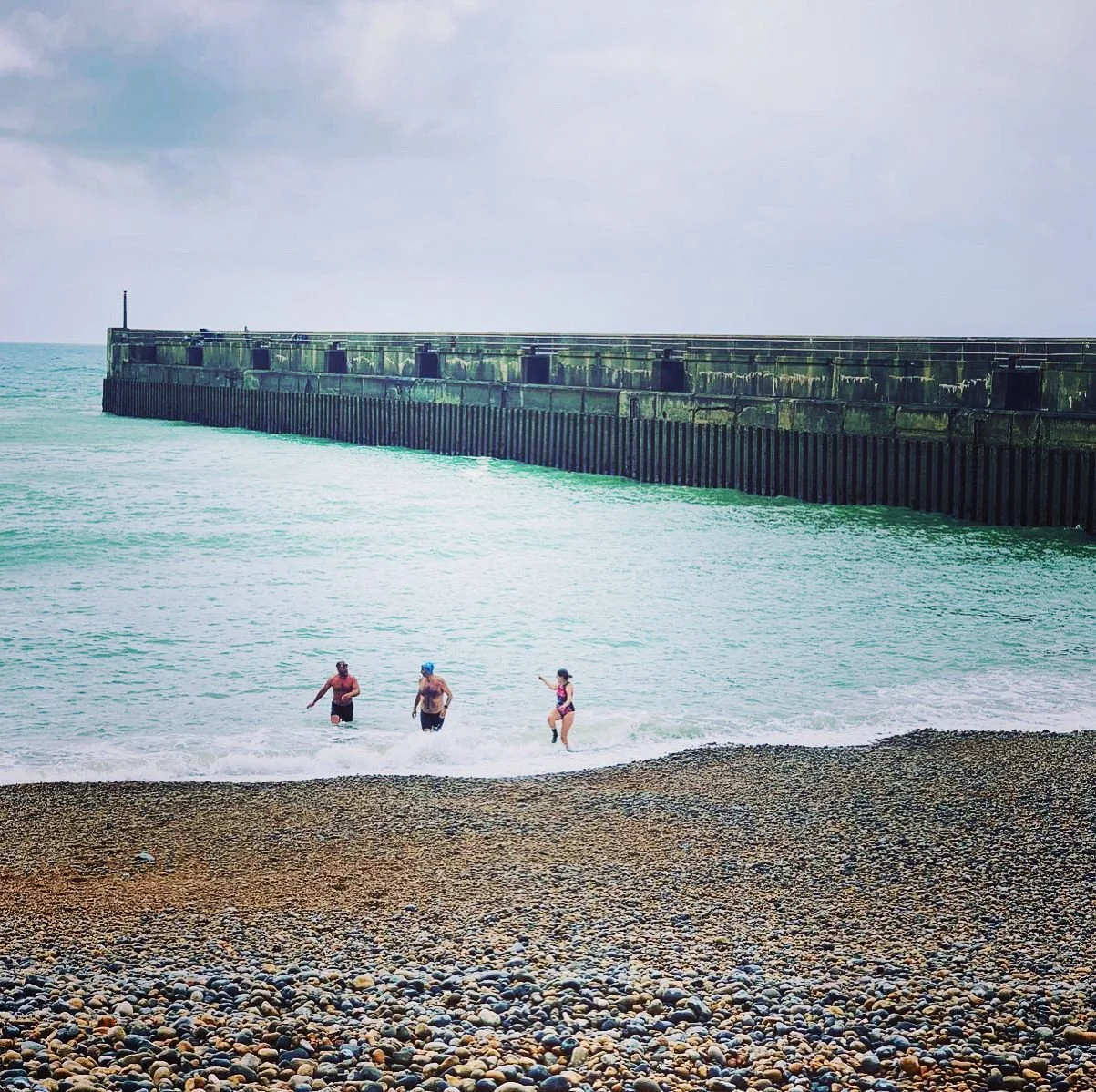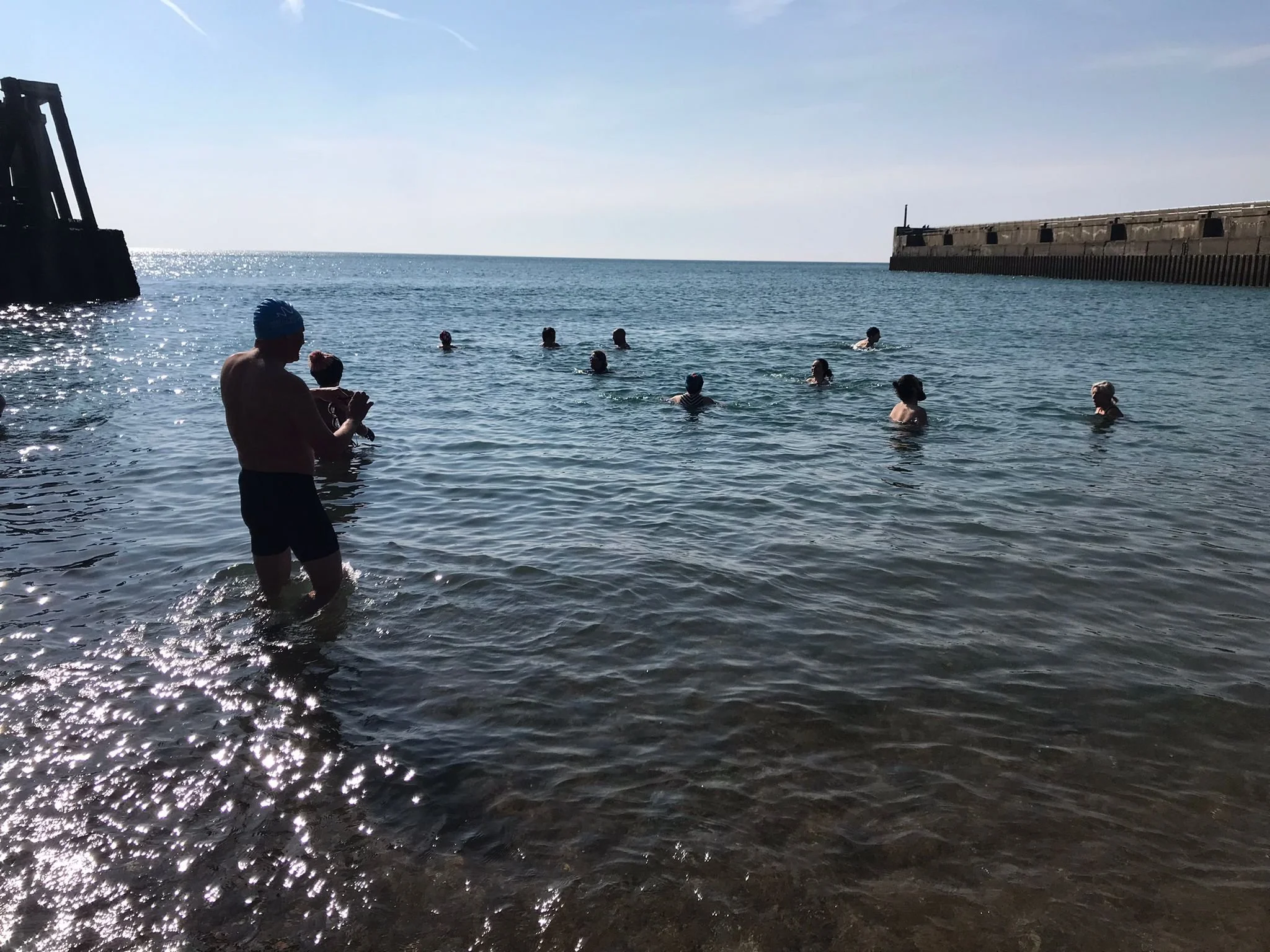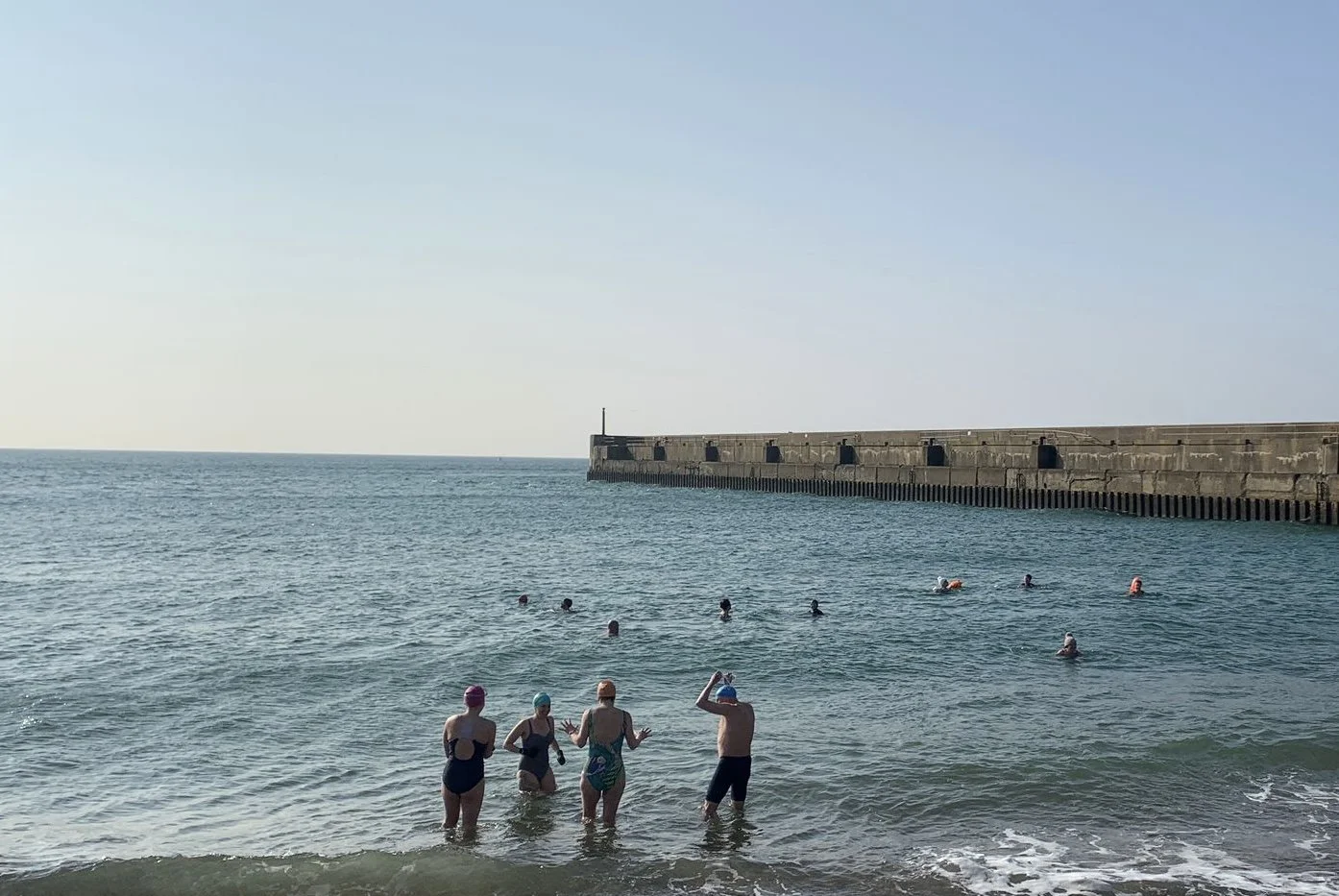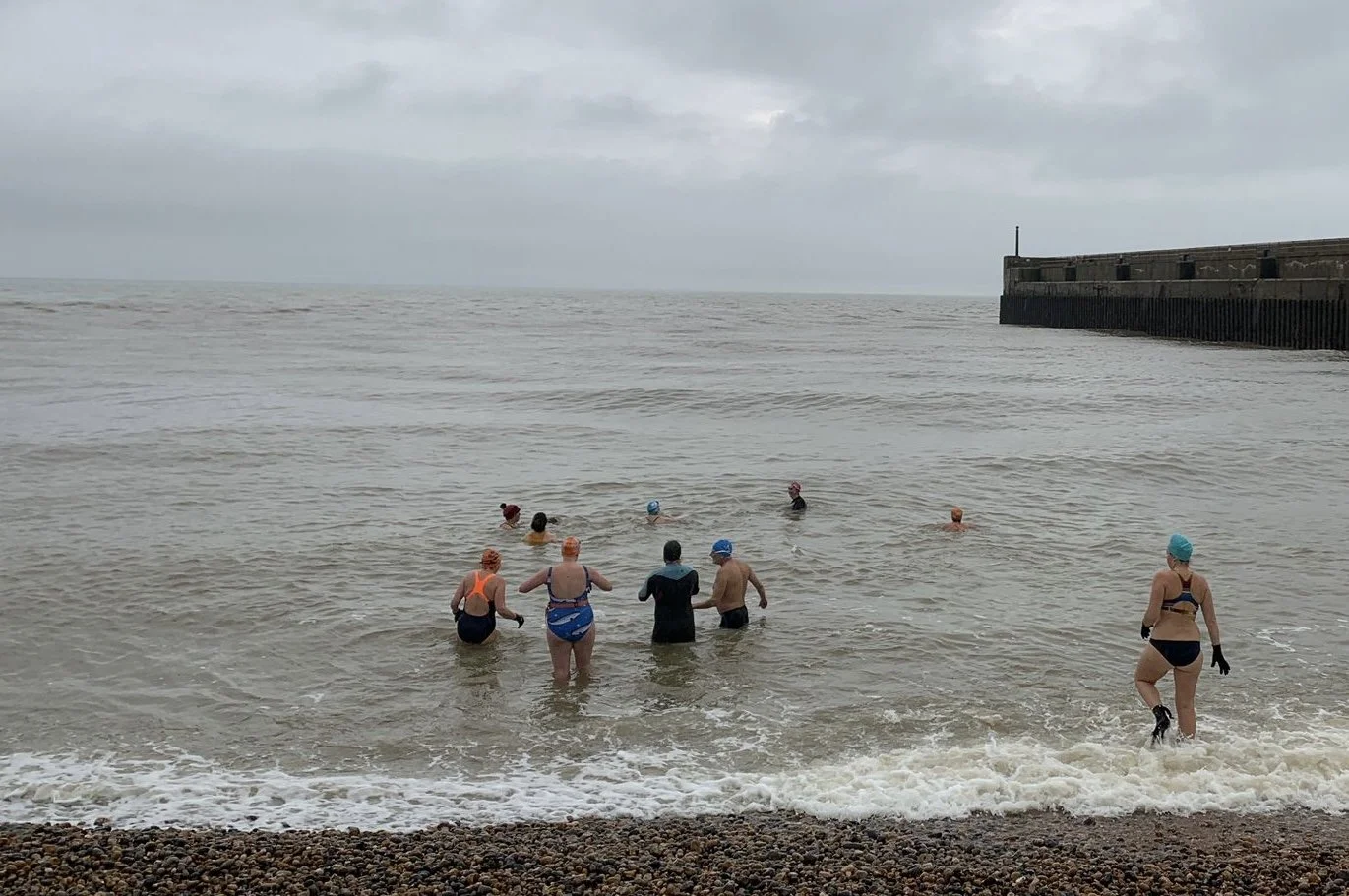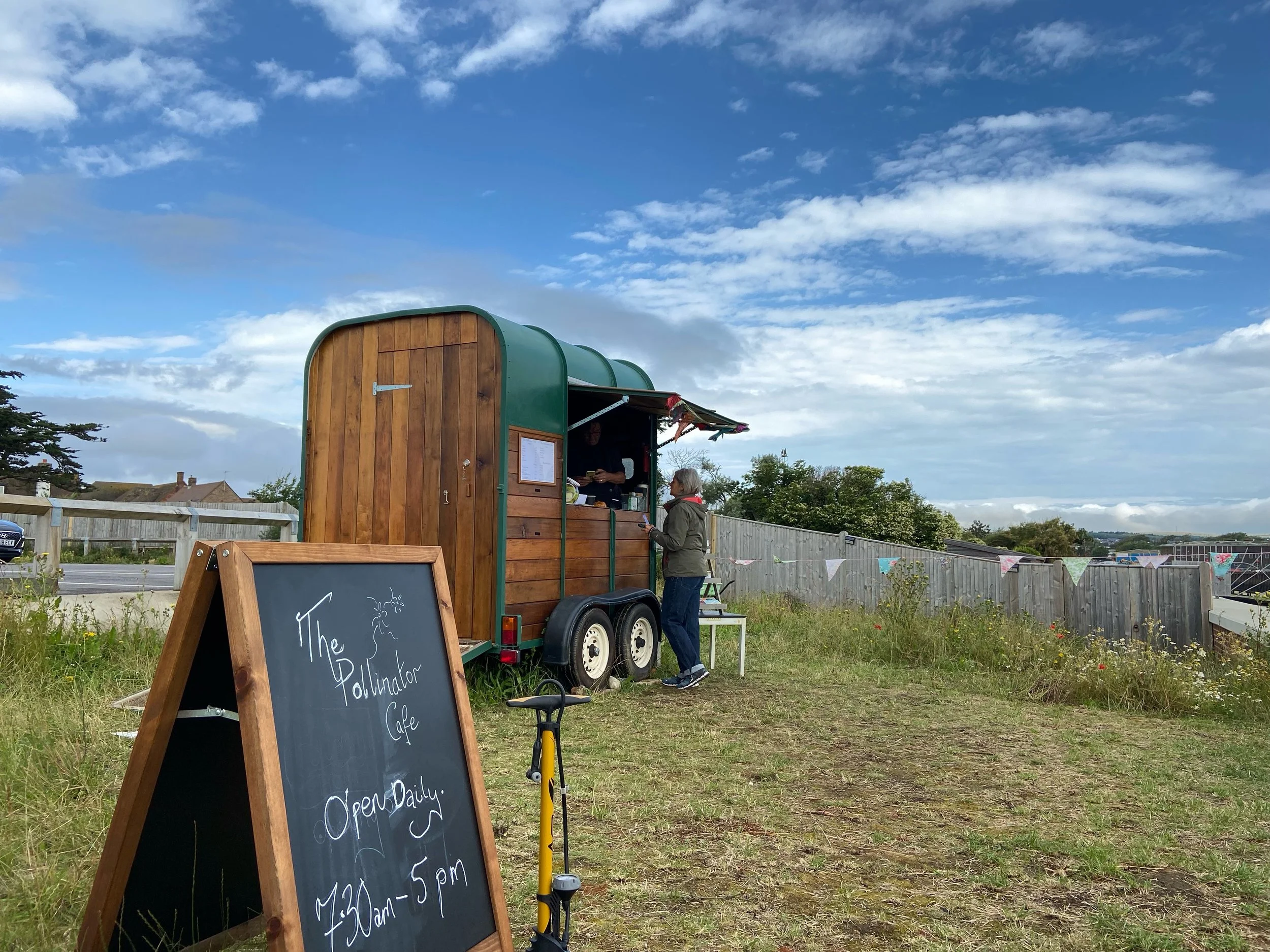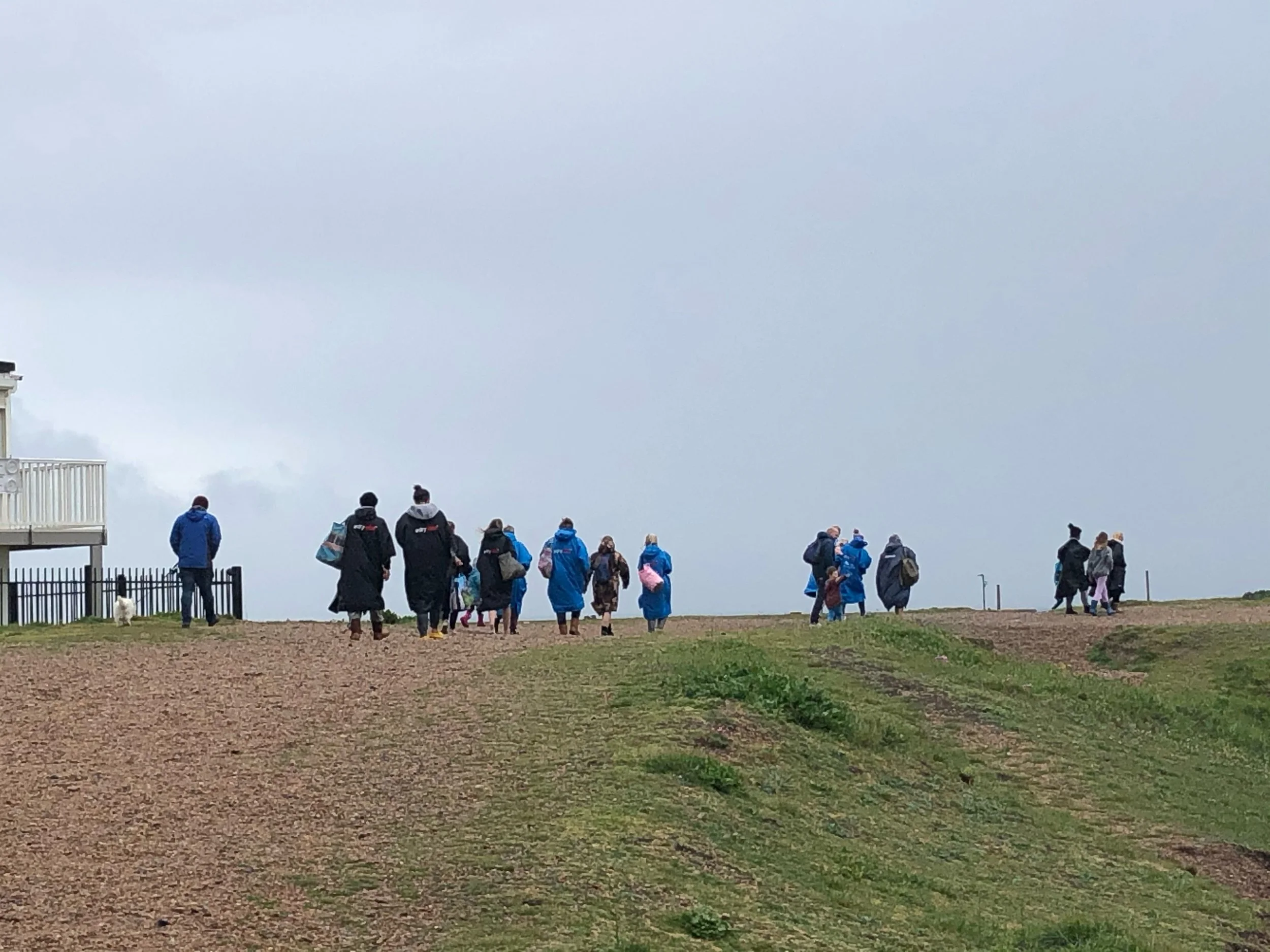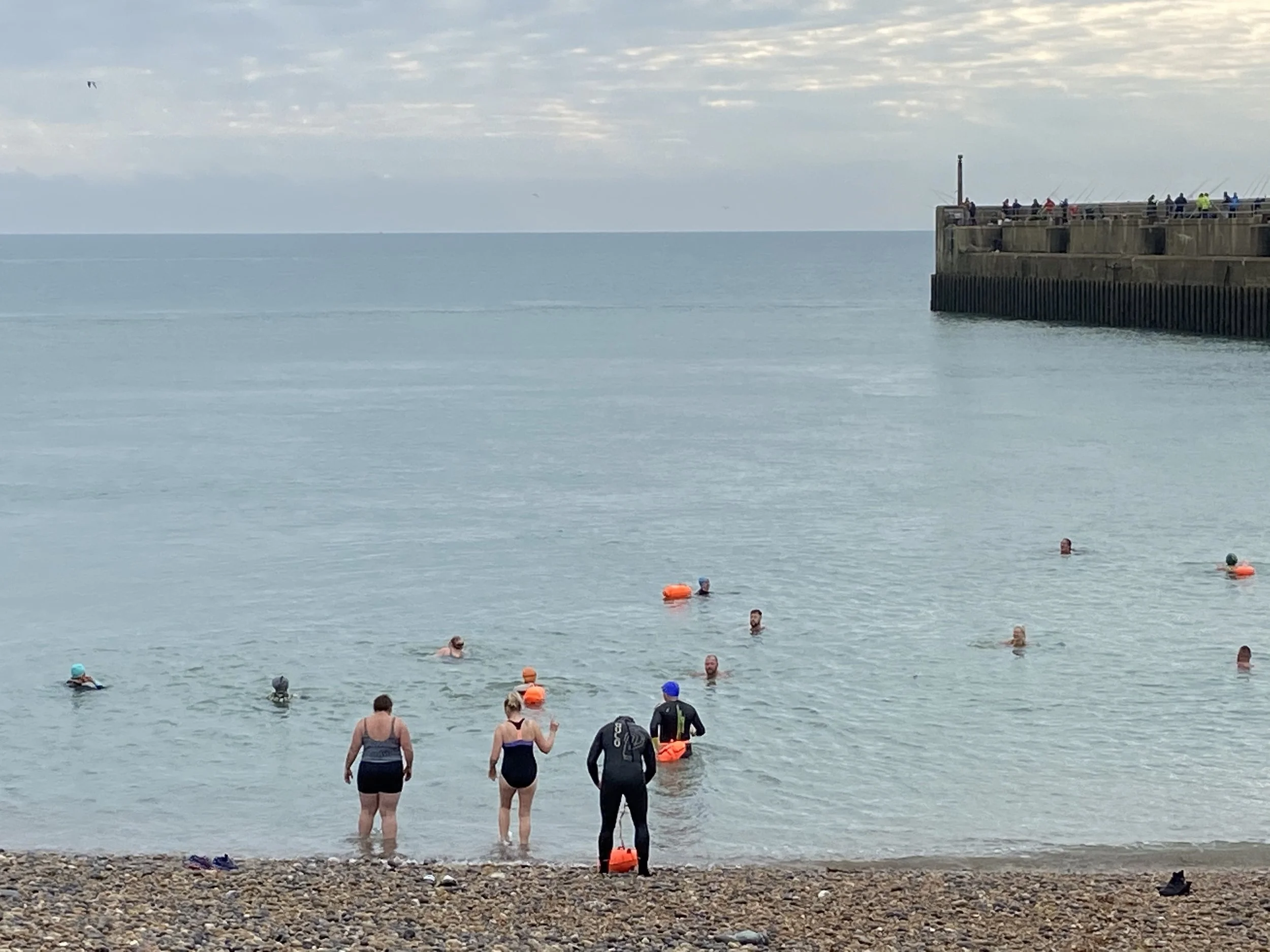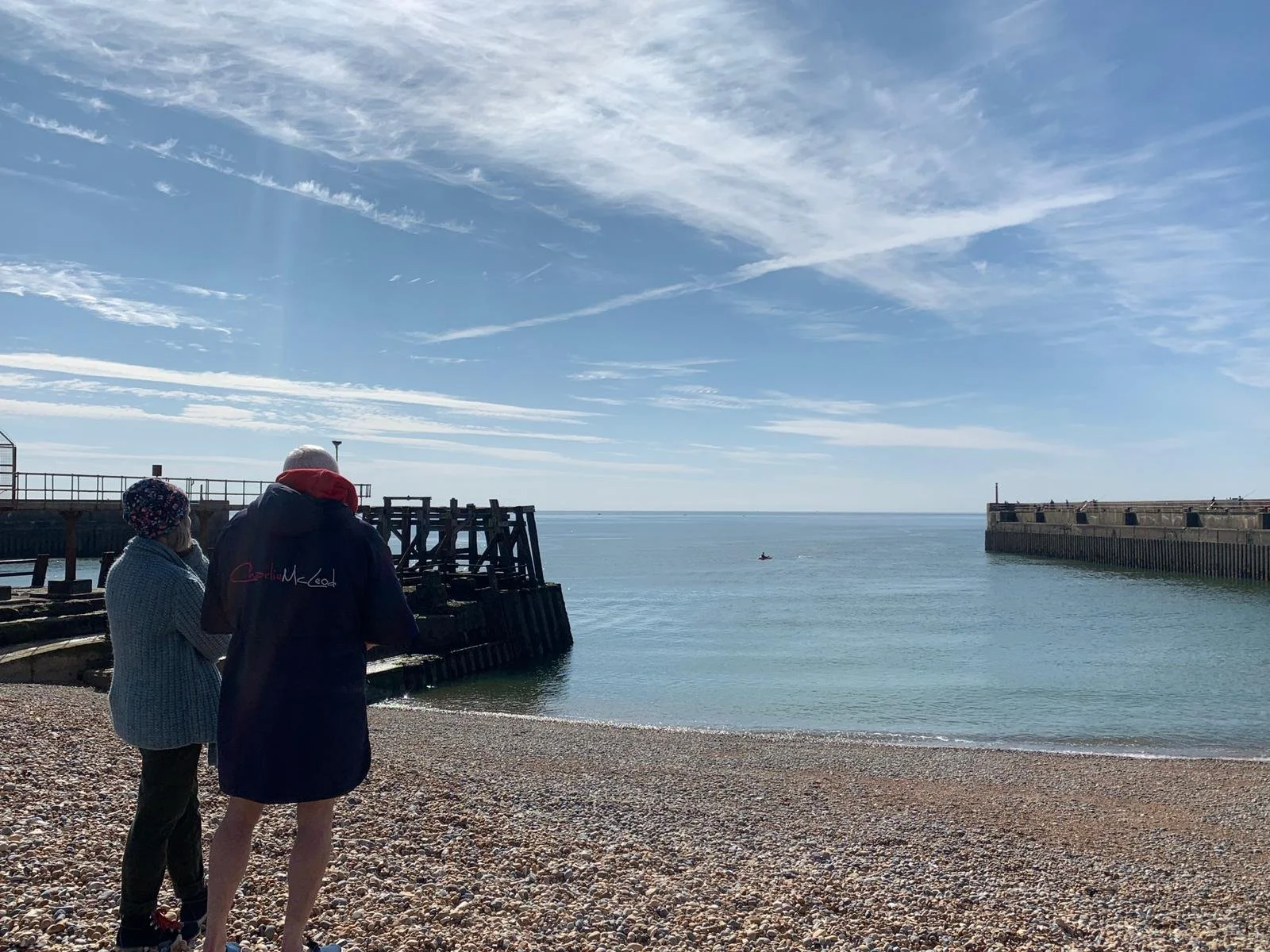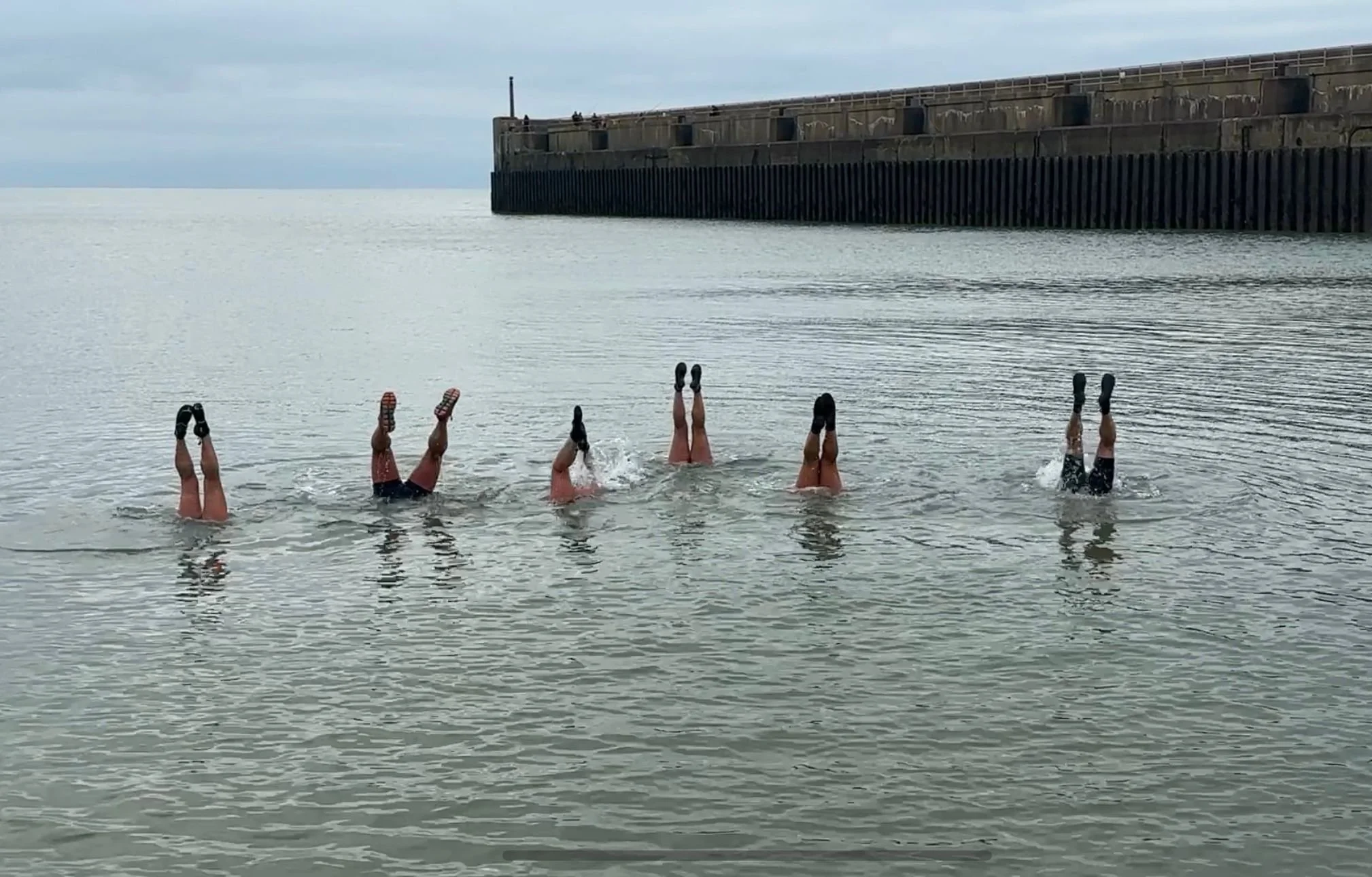It’s been a while since I wrote a blog post for this site as I’ve been immersed in researching and writing a book on how to make confidence the heart of great coaching. Throughout this period, though, once a month Mental Health Swims have been a constant, alongside the coaching and work with other coaches I do.
And so, with a little more time to reflect and World Mental Health Day 10 October approaching, this post is about our local Mental Health Swims: the monthly magic, what we do and some open questions for coaches.
Three Years!
Mental Health Swims have rapidly grown from small beginnings in 2019 to now spanning over 150 locations throughout the UK. The focus is all on creating friendly, welcoming spaces for anyone to enjoy a cold dip in warm company.
Co-hosts Jo and Gemma demonstrate chilled out
Here at Shoreham-by-sea, we were one of the early starters. Our very first Swim had three co-hosts - brothers Danny & Brent and me - and just two ‘guest’ swimmers. Word spread and each month new faces joined, some becoming regulars, others every now and then. Swimmers far outnumber hosts now, though our host team has also grown.
And last month we celebrated three years, with cake on the beach (thanks Brenda).
What’s Special?
I think of at least three things. The first is to do with the association to Mental Health. There is no claim to cold water swims as a miracle cure-all. Nor do we see ourselves as being experts in mental health or there to offer therapy. I see it more as opening a stigma-free space where we can each come as we are, without judgement or an expectation to be any different to how we might be in that moment.
And there is an unspoken recognition that we can all go through hard times. Being present, ready to listen if need be, counts for more than offers of ready-made solutions and fix-its.
Secondly, there’s something about creating an un-rushed, calm space where anyone can come along - regardless of whether they are regular swimmers or dipping for the first time. I find this brings a calming stillness to me and that I also see in others. The worries and pressures of the month can largely be left behind as we meet up, welcome newcomers and catch up with familiar faces.
And then, particularly in our shorter dips through the colder winter and spring months, the magic of immersing ourselves in cold water takes effect. I think of this as experiencing a full-on, total mindfulness rush. In that moment it is as if we switch on a heightened level of sensations, utterly connected to self and the environment, that we rarely experience day to day - too much of which has the opposite, numbing, disconnecting effect.
“... a full-on, total mindfulness rush”
What works for us
Here are a few things that have worked for us over these last three years:
we encourage people who might be a little wary to buddy up, keep an eye out for each other as well as looking after themselves. We suggest anyone dipping for the first time or who might be a little anxious to go in with one of the co-hosts, if they want. All seems to add to the sense of a caring community
as a rule of thumb we suggest “get out before you think you need to.” No prizes or kudos given to staying in for any longer than feels right. It seems to take the pressure off and stop it feeling like a trial
particularly in the colder months, its important to have warm layers of clothes at the ready as soon as we get out, as the body temperature will continue to drop for a little while after leaving the cold water. Hot chocolate or coffee at the nearby Pollinator Cafe (big shout out for them) have become our signature post-dip warm up drinks. The chatting at the end is as much a part of the Swims as being in the water
and as co-hosts, we check to make sure we are each comfortable with what we’re doing: sometimes changing location to a more sheltered beach or maybe sitting it out beachside if any one of us is not feeling up for it.
Each Swim will have its own way of doing things - no one size fits all prescriptions beyond the basics of safety and duty of care.
for coaches
Our Swims make me think of deeper lessons - or questions - that I bring to my coaching.
First, we are all increasingly encouraged to be mindful of the mental health and wellbeing of those we coach. Quite right. Yet I sense that often our instinctive reaction is to switch into fix-it mode, believing we have to do or say something to make things better - or declare “you can tell me anything” (whilst secretly hoping no one does). Something I’ve found in Mental Health Swims is the quiet, simple art of being there in a fix-it free, accepting space.
Second, how do we view great coaching? What are our greatest skills? In the coaching world we tend to think of the pinnacle of coaching as being with high performing athletes, competing at the most prestigious and high pressured environments. We might think of the stuff of Mental Health Swims as belonging to a very separate, not much to do with coaching world.
But what if we thought of confidence and self-belief, rather than performance, as the central focus of all we do - whatever the ambitions or abilities of the people in front of us? What if our highest skills were a calm, compassionate, curious attentiveness to the person in front of us, rather than any instructional prowess and technical expertise? Where might we practise such skills? And who would be the leaders and role models we would look to learn from?
And there is so much to learn from those who join us each month. I wonder how many coaches are able to come away from their sessions with such a depth of wonder at what they have seen people do, a humbling and genuinely heartwarming connection, a sense of the privilege to be alongside those we are with.
I’d love to hear if there are spaces where you find a similar level of calming stillness and a depth of connection? Please use the Comments space below to post up your reflections - or get in touch to share your thoughts.
And check out whether there’s a Mental Health Swim near you - you’re guaranteed a warm welcome.

